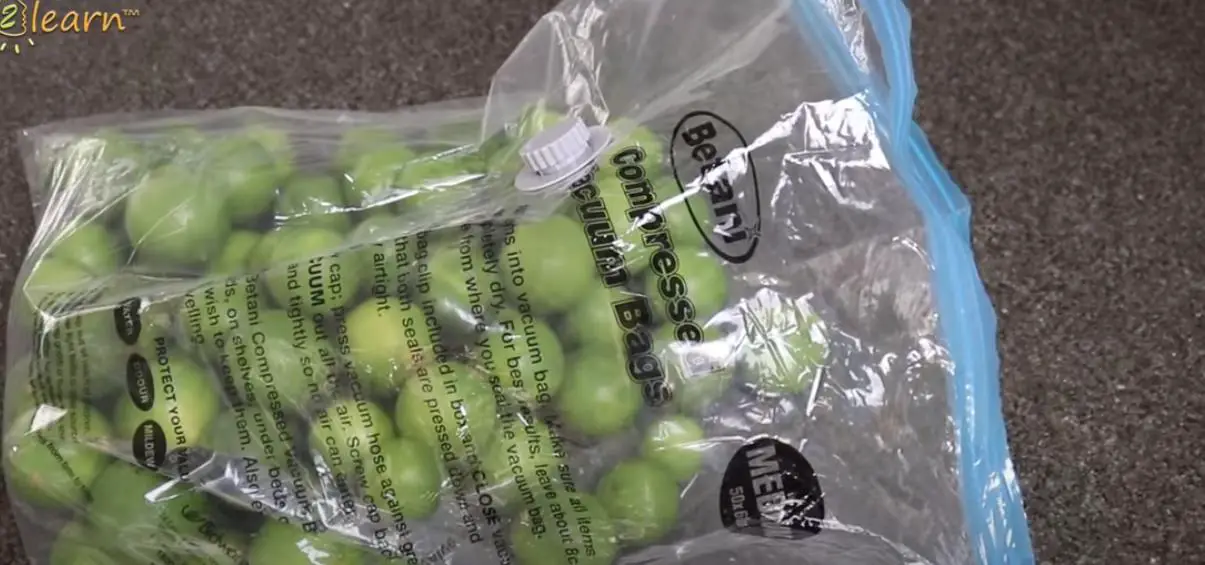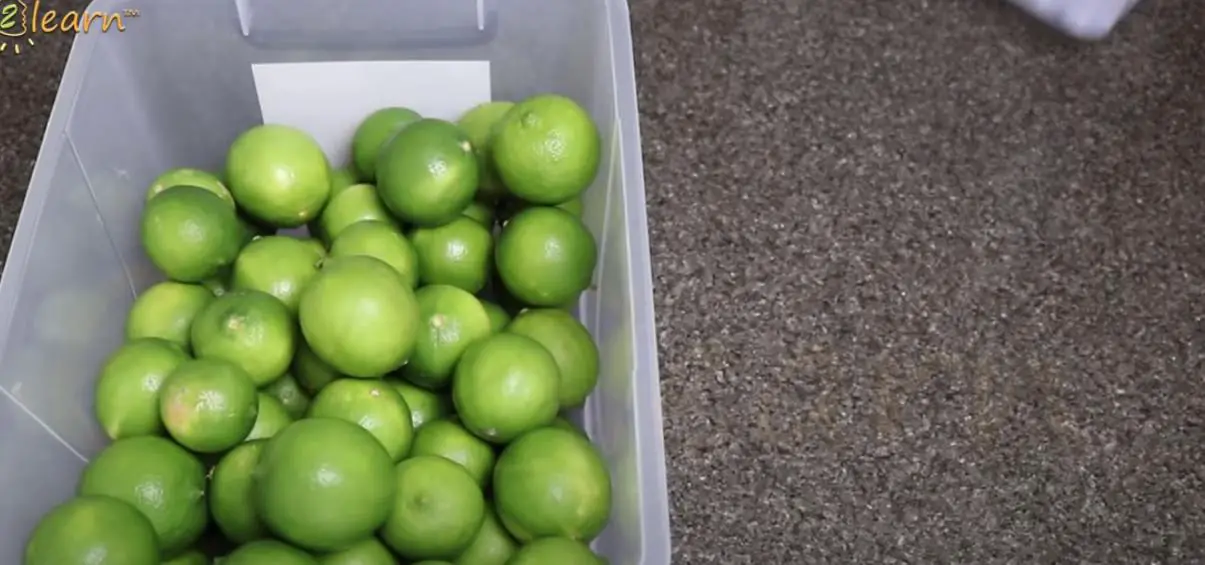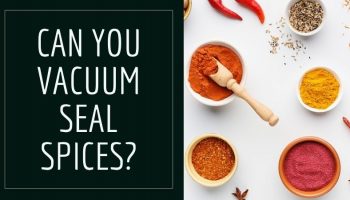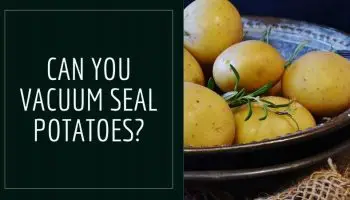Key Takeaways
- Yes, you can vacuum seal lemons. This is a great way to keep them fresh for longer
- Vacuum sealing lemons is easy to do and require just a few simple steps
- When vacuum sealed, lemons will last for weeks or even months in the fridge
- Vacuum sealing is an effective way to preserve lemons and prevent them from going bad too quickly
Have you ever been in the middle of making a recipe, only to realize that you’re out of lemons?
Or maybe you’ve gone to grab a lemon from the fridge, only to find that they’ve all gone bad.
If this has happened to you, then you know how frustrating it can be.

What are the benefits of vacuum-sealing lemons?
Lemons are delicious and versatile fruit that can be used in sweet or savory dishes. They are also a great source of Vitamin C, which is important for immunity and overall health.
However, lemons can be frustrating to keep fresh – they start to lose their flavor and texture after only a few days in the fridge.
Vacuum-sealing lemons is a great way to preserve them so that they stay fresh for much longer.
Vacuum sealing lemons prevents oxidation, which is what causes them to go bad.
When oxygen interacts with the lemon’s natural oils, it breaks down the structure of the fruit and makes it become mushy and discolored.
Vacuum sealing eliminates this problem by removing all of the air from around the lemon, essentially pausing its aging process.
This means that you can keep Lemons vacuum sealed for months without any loss of quality.
In addition to preserving lemons, vacuum sealing also helps to intensify their flavor.
Because there is no air exposure, all of the lemon’s essential oils are retained inside the fruit.
This gives vacuum-sealed lemons a brighter, more intense flavor than those that have been stored in the fridge without being sealed.
How does vacuum sealing extend the shelf life of lemons?
Lemons are versatile fruit that can be used in sweet or savory dishes. They add a bright, acidic flavor to food and can also be used as a natural cleaning agent.
Lemons are an excellent source of Vitamin C and have many health benefits.
However, they often have a short shelf life and can go bad within days of being picked.
Vacuum-sealing lemons is a great way to extend their shelf life. Vacuum sealing helps preserve the flavor of lemons and keeps them fresh for up to four weeks.
Lemons stored in the freezer can last for up to four months when vacuum sealed. Vacuum sealing is an easy way to save money and reduce food waste.
Can you still use lemons after they have been vacuum sealed?
Lemons are versatile fruit that can be used in a variety of dishes, from sweet to savory. They are also a popular ingredient in many household cleaning products due to their high acidity.
While lemons can last for several weeks when stored properly, they will eventually start to spoil and should be used within a few days of being cut open.
One way to extend the shelf life of lemons is by vacuum sealing them. This method of storage removes all the air from around the fruit, which prevents oxidation and slows down the spoiling process. Vacuum-sealed lemons can last for up to two months without going bad.
So, if you have some vacuum-sealed lemons that are starting to look a little wrinkled, don’t worry – they’re still good to use! Just make sure to give them a good wash before using them in your cooking or cleaning projects.
How do you properly store lemons to prolong their freshness?
Most people don’t realize that there are a few simple things you can do to prolong the freshness of lemons. With proper storage, lemons can last for weeks or even months. Here are a few tips:
- Store them in the fridge: This is probably the most obvious tip, but it’s worth mentioning. The cold temperature will help to keep the lemons fresh for longer
- Store them in a glass jar full of water: This is a great way to keep lemons fresh for extended periods of time. Simply fill a jar with water and place the lemons in it. The water will help to keep them from drying out and prevent them from going bad too quickly
- Vacuum seal them: This is one of the best ways to prolong the shelf life of lemons (or any fruit for that matter). Vacuum sealing prevents air and moisture from getting into the lemon, which would cause it to spoil more quickly. If you vacuum seal lemons, they can last for months without going bad.
What is the best way to keep cut lemons from going bad?
Lemons are versatile fruit that can be used in a variety of dishes, from sweet to savory. But what do you do when you have leftover lemons that you need to store? If you don’t want them to go bad, there are a few things you can do.
First, make sure to store your lemons in the fridge, either in the crisper drawer or on a shelf. Cut lemons can be wrapped individually or together in a resealable plastic bag and stored in the refrigerator. This will help prolong their freshness.
If you’re really looking to extend the life of your cut lemons, vacuum sealing them is the way to go.
Vacuum sealing prevents air and moisture from entering the bag, which helps Lemons stay fresh for up to 4 times longer than storing them in a regular plastic baggie.
Plus, it’s super easy to do! All you need is a vacuum sealer and some bags designed for vacuum sealing food.
So there you have it – two simple ways to keep your cut lemons fresher for longer.
Can you freeze lemons after vacuum-sealing them?
When it comes to vacuum sealing, lemons are a great option. Not only can you keep them fresh for up to four months, but they’re also easy to thaw and use.
Simply place them in a freezer bag and remove as much air as possible before sealing. Then, when you’re ready to use them, microwave them for 30 seconds.
Do you need a special machine to vacuum seal lemons, or can any type of sealer be used?
Lemons are a citrus fruit that is prized for its tart flavor and acidic juice. They can be used in cooking or baking to add a tangy flavor, or they can be eaten on their own as a snack. Lemons are also a popular ingredient in many cocktails and drinks.
Vacuum-sealing lemons is a great way to extend their shelf life and keep them fresh for longer periods of time.
Vacuum-sealed lemons will last for up to two weeks in the fridge, whereas unsealed lemons will only last for about one week.
There are special vacuum sealers made specifically for sealing citrus fruits like lemons, but any type of vacuum sealer can be used to seal them.
The important thing is to make sure that the lemon is completely dry before placing it in the bag or container, as moisture can cause mold growth.
What other types of fruit or vegetables can be effectively stored using a vacuum sealer?
When it comes to vacuum sealing, many people think of storing meat and other perishables. However, there are actually a wide variety of fruits and vegetables that can be effectively stored using this method.
Leafy veggies such as broccoli, Brussels sprouts, cabbage, carrots, cauliflower, celery, garlic, green beans, and peas can be quickly dried in a salad spinner.
This not only helps to prolong their shelf life but also prevents them from taking up too much space in your freezer.
Other types of products that can be vacuum sealed include apples (which will last for up to two years), avocados (which can last for several months), bananas (which will stay fresh for around three weeks), berries (which will maintain their freshness for up to eight months), cherries (which can last for up to 18 months), citrus fruits (such as lemons and oranges) which will remain fresh for around six weeks), grapes (which can last for several months), and melons (including watermelons and cantaloupes) which will stay fresh for around two weeks).
Peppers (both sweet and hot varieties) can also be effectively stored using this method. In fact, almost any type of fruit or vegetable can benefit from being vacuum sealed.
Have there been any studies conducted on the effects of vacuum sealing on lemon freshness or flavor profile over time?
When it comes to preserving lemons, vacuum sealing is often seen as the best option. But how does this method affect the lemon’s freshness and flavor profile over time?
Studies have shown that vacuum packaging can indeed slow down the deterioration of food quality. However, it’s important to note that spoilage bacteria still multiply relatively quickly in an oxygen-free environment as vacuum packaging creates.

So while vacuum sealing may prolong the shelf life of lemons, it won’t necessarily keep them fresh and flavorful indefinitely.
There are a few things you can do to help preserve your lemons’ flavor for as long as possible.
First, be sure to buy fresher lemons – those with bright skin and no blemishes or bruising.
Second, store them in a cool, dark place away from direct sunlight or heat exposure.
And finally, if you’re not going to use them right away, seal them tightly in a plastic bag before putting them in the fridge or freezer.
Final Verdict
You can vacuum seal lemons in a ziplock bag or with a vacuum sealing system. This will help keep the air out and preserve the lemon. You can also freeze lemons by vacuum sealing them to prevent freezer burn.



![Can You Vacuum Seal Tomatoes? [The Proper Way!]](https://vacuumsealerzone.com/wp-content/uploads/2021/08/Can-You-Vacuum-Seal-Tomatoes-350x200.jpg)